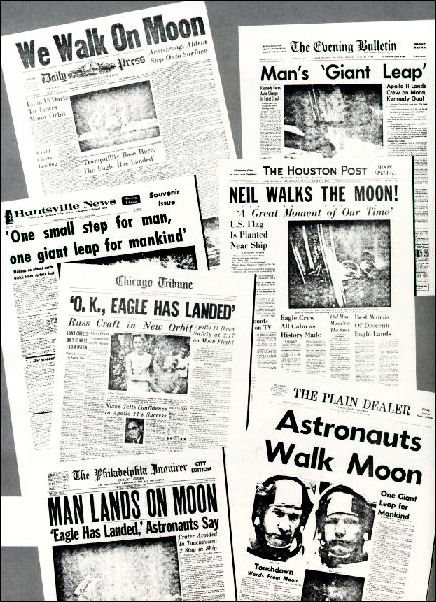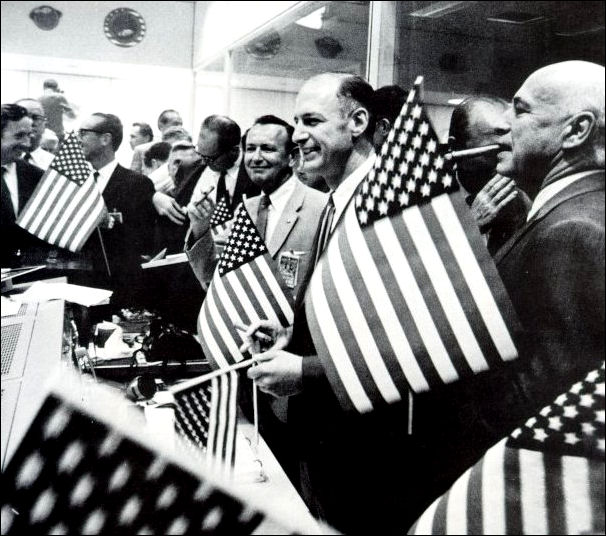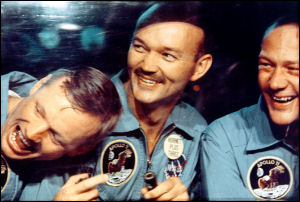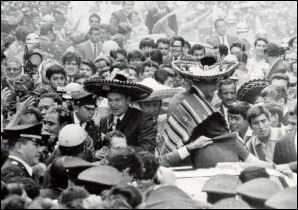
|
| No one knew it when Columbus first stepped on Watlings Islands, but every headline writer was challenged by the first manned Moon landing. The full newspaper coverage suggested by these front pages was just a part of it. Considering the nearly worldwide radio and television coverage, it has been estimated that half the population of the planet was aware of the events of Apollo 11. |





